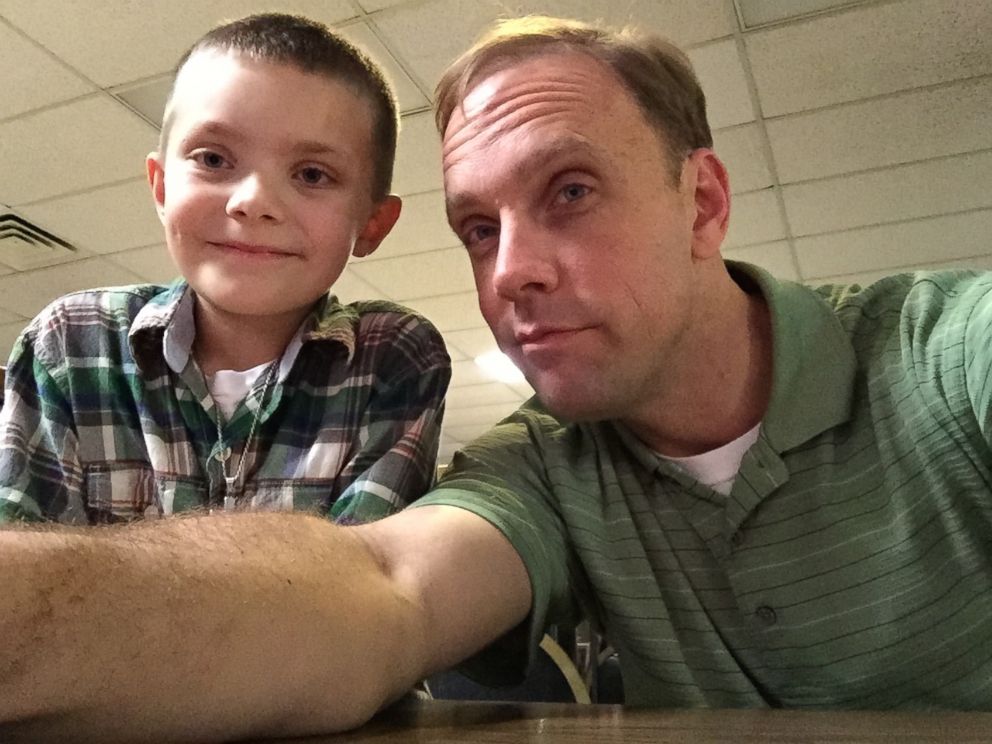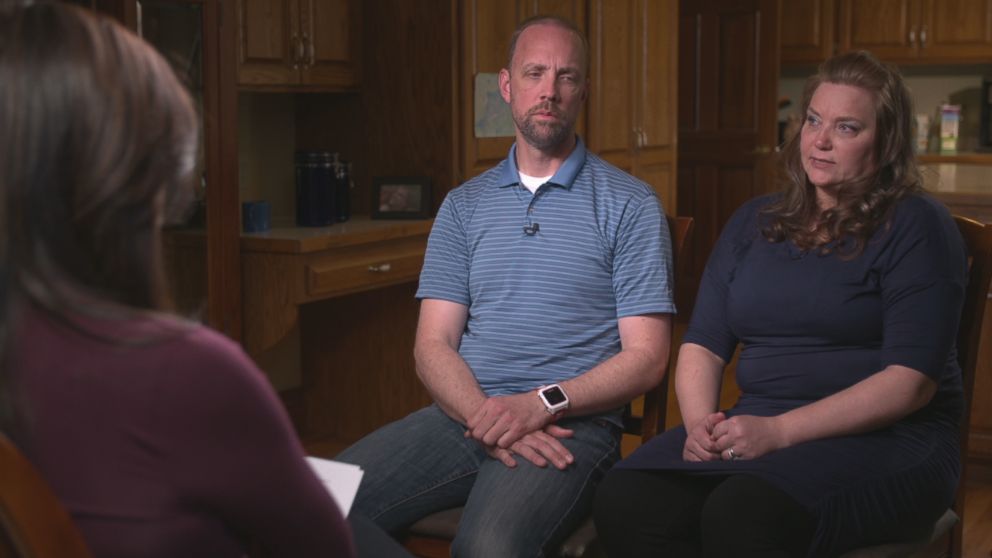COLUMN: 'This monster had consumed my boy': What life is like when your child is diagnosed with PANDAS
"His abrupt transformation is a classic presentation of this hideous disease."
Brian Barnes is a father living in suburban Minnesota with his wife Natalie Barnes and their four children. Their oldest son Parker was just 10 years old when the Barnes family says he went from being a rambunctious and outgoing boy to having odd tics and strange moodiness in April 2017. For months, the Barnes say, Parker had seizures and was dealing with debilitating anxiety, rage and depression. An emergency room doctor recommended that Parker be evaluated by a psychiatrist. As Parker was evaluated, one doctor became struck by one factor in his case. She learned that Parker's symptoms had first begun months earlier, when he had been diagnosed with strep throat, and said he might have something called Pediatric Autoimmune Neuropsychiatric Disorders Associated with Streptococcal Infections (PANDAS).
Brian and Natalie Barnes took Parker to more than a dozen doctors in Minnesota looking for a remedy for PANDAS, showing them home videos of his erratic behavior. They got limited results. A pediatric neurologist they saw confirmed Parker's PANDAS diagnosis after evaluating him for two hours.
Our son Parker was a wonderful 10-year-old boy.
As the eldest of our four kids, he was a most capable young man. He got good grades in school, was popular among his classmates, adored by his teachers and loved by his family. We nicknamed him "The Lead Dog" as in how a dog team is directed by a natural leader at the head of the team.
He was organized, stone reliable and obviously smart with a dry sense of humor and a wry smile that gave the impression of an old soul. His reliability was way above his peers. You could count on him every time you needed him.

Somewhere in the night Parker's immune system responded to a typical infection and quietly began a dysfunctional campaign against his brain. In a matter of months he had descended into psychosis, hallucinations, suicidal actions, rages, torturous anxiety, obsessive behavior, compulsions and seizures. He experienced a loss of his fine motor skills and a loss of appetite. He lost weight and eventually lost the ability to speak for more than four months.
After repeated evaluations from multiple medical specialists along with exhaustive research and data collection from every possible angle, we were left with a diagnosis of a little-known condition called Pediatric Autoimmune Neuropsychiatric Disorders Associated with Streptococcal Infections (PANDAS) or sometimes called Pediatric Acute-onset Neuropsychiatric Syndrome (PANS). Because Parker was 10 years old and we had a decade of rock-solid experience with his personality and character, his abrupt transformation is a classic presentation of this hideous disease.

Oftentimes for days on end he would be reduced to a crying ball in a corner of his room, unable to speak, interact or function. Huge tears would flow down his cheeks for hours, day after day, as he cried out in his mental agony. It is a nightmare the likes of which we never knew existed. Our lives were turned upside down in an instant and everything we knew had changed. We battled disbelief, confusion, disinformation and finally the realization that this monster had consumed our boy and that we were in for the fight of our lives.
I used to think that the medical system was by design steadfast and determined to find a cure for whatever ails you, and certainly for whatever ails your child. To my surprise, I found that we were expected to be the number-one care coordinator and researcher for our son's condition. In fact, many in the medical community flatly turned a blind eye, alluded that we were making it up or incorrectly diagnosed our son with a psychiatric disorder. We were later warned that psychiatric drugs will typically make it worse.
Our insurance company did not want to pay for treatment even after a correct diagnosis. We were forced to fight with uninformed doctors, tight-fisted insurance companies and disbelieving but well-intentioned family and friends, all while caring for our disintegrating child.
To compound matters, there is a small group of vocal doctors that, for their own reasons, stubbornly lead the opposition to this disease on the national stage and seemingly have a stranglehold on the progression of treatment. They dispute the science and ignore successful treatments.

Our story is not unique, but frighteningly common. When children begin demonstrating the rapid dysfunctional symptoms of PANDAS/PANS, the kids suffer terribly and as a result the parents are driven insane trying to battle the onslaught of symptoms. To say that it's maddening would be a huge understatement.
We are here. Our kids are here. We need help and it can be a lonely battle. The worst part is that there may be a one in 200 chance that it will happen to your child or a child you know.
Listen.
Watch Brian Barnes and his son Parker's story on ABC News' "20/20" FRIDAY at 10 p.m. ET and "Nightline" at 12:35 a.m. ET.
The opinions expressed by the author do not necessarily reflect those of ABC News.





